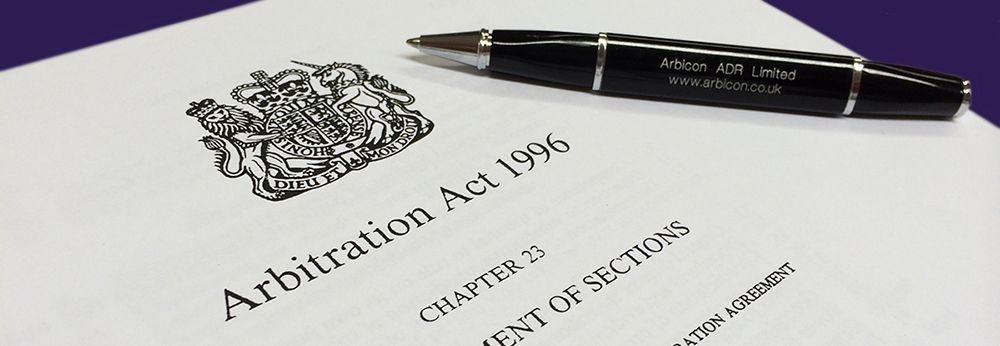What is Construction Arbitration?
Arbitration is a form of alternative dispute resolution (ADR) that provides a final solution to a construction dispute. Arbitration is private, with the aim to resolve disputes fairly, keeping costs and delays to a minimum. Disputes are resolved based on material facts, documents, and relevant construction law principles.
The parties must first opt into the use of Arbitration in construction, a written clause is required in the construction contract, with the agreement stipulating the procedure to be adopted. The Arbitration process includes required elements from the Arbitration Act 1996, such as certain components which are required when drafting an Arbitration agreement.
Below we explain the Arbitration process when using this method of ADR to resolve your construction dispute, which can also be used to overturn an Adjudication decision.
Initiating the Arbitration
One party makes the request for a construction dispute to be referred to Arbitration.
Appointing an Arbitrator
Once a construction dispute has been referred to Arbitration and the process initiated, the parties must agree on the procedures to be adopted, deciding whether a single Arbitrator or a panel of Arbitrators is to be appointed. This will depend on the type of dispute to be resolved.
There are several ways to appoint an Arbitrator, either directly by the disputing party, a combination of the parties, or through an external party, for example ADR specialists such as Arbicon.
Preliminary Meeting
Once the Arbitrator has been appointed, a preliminary meeting will take place between the parties, giving the Arbitrator the opportunity to issue instructions on how the Arbitration is to be conducted, stating the timescale, pleadings and the appointment of Experts.
Hearing
Each party submit all relevant documents and once the Arbitrator has studied the evidence, an Award will be made. Hearings can often be document only, although complicated cases may require an oral hearing.
Arbitration Award
The award is usually in writing, signed by the Arbitrator, unless the parties have agreed a different form that the award should take. Reasons for the award will be included, and the ‘seat’ defined. The ‘seat’ is confirmation of the place the award was made, regardless of where it was signed, dispatched, or delivered to any of the parties.
The Arbitrator’s decision is final, and the award is legally binding.
Arbicon advise on all matters relating to the Arbitration Act 1996 and the Arbitration process for all types of construction disputes. To find out more about Arbitration and whether it is the best ADR method for your particular issue, please use our contact form or call one of our offices.

